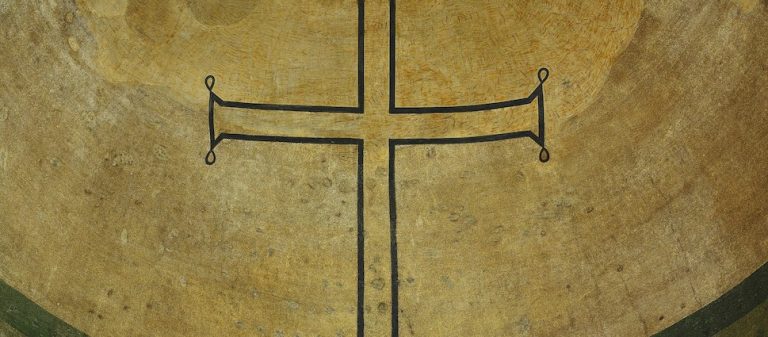

Dr. Derek Cooper is Associate Professor of World Christian History at Biblical Seminary (Hatfield, PA). He has the distinct honor of writing the only PhD thesis on the seventeenth-century Puritan, Thomas Manton. He also wrote a popular book on Manton: Thomas Manton: A Guided Tour of the Life and Thought of a Puritan Pastor. Below is an interview I did with him back in 2010.
First of all, tell us about yourself.
I am a native Texan who has managed to find himself living in suburban Philadelphia for the past decade! I have been married for almost ten years, and I have three young children. I teach biblical studies and historical theology at Biblical Seminary in suburban Philadelphia. Most recently, I have been working part-time as a pastor at a local church.
In any spare time I have, I enjoy writing. I wrote my first book to help those who are thinking about going to seminary or who have just started. It’s called So You’re Thinking about Going to Seminary (Brazos Press). My other writings focus on church history and biblical interpretation.
I’d like to ask you from the get-go, why is Thomas Manton worthy of our readers’ attention and investment of time and money?
I’ve always found the writings of the Puritans to be deeply rewarding as a Christian. Once you get past their sometimes dense prose, you meet people who are godly, intelligent, personable, and entertaining to read. Thomas Manton is no exception. He was a fantastic preacher and writer, and his images and analogies are as lively today as they were several centuries ago.
What’s more, Manton was actually a very prominent figure within his context. He was actively involved in one of the most significant and intriguing times in all of English history (1640s-1660s), and was friendly with the most well-connected and well-to-do people in all of England.
So how did you come to be interested in Thomas Manton?
I was working on my PhD a few years ago, and was hoping to write my dissertation on an English pietist or puritan who wrote biblical commentaries on the New Testament. After reading the works of several authors, I came across Thomas Manton. I really appreciated his writing, his use of the biblical text, his familiarity with previous commentators, and his importance within his time period.
Can you give us The Idiots’ Guide to the 17th-century context in which Manton ministered?
Thomas Manton lived during an extraordinary time in English history. Manton was just getting started with his career in the midst of the amazing events in the 1640s, 50s, and 60s. Here’s a brief snap shot: England was in the midst of a civil war, which carried on for several years—and which forced Manton to eventually relocate to London. Eventually an army formed (the New Model Army) that physically removed about 200 members of Parliament, the culmination of which was the arrest and condemnation of the king. King Charles I was beheaded in 1649! Then Oliver Cromwell, before whom Manton served as one of many chaplains, took control of the state for almost a decade. After Cromwell died, Manton himself traveled to Holland with others to negotiate with Charles I’s son, Charles II—who had been in hiding—to return to England. After he did so in 1660, a spate of legislative acts was passed by the new Parliament to remove those who had been opposed to the monarchy. Although Manton and many other presbyterians were in favor of the monarchy, they were opposed to new laws that required pastors to be (re-) ordained by a bishop, to abide completely by the Book of Common Prayer, and to agree fully with the Thirty-Nine Articles of Religion. In all, about 25% of ordained clergy in the Church of England (including Manton) were ejected from their positions in 1662 for refusing to sign on to the new legislation. Manton lived in the midst of these (tumultuous) economic, political, and religious times.
On that note, what sort of relationship did Manton have with John Owen?
Owen and Manton knew each other well, but my interpretation of the data leads me to believe that they may not have been the best of friends. They had disagreements about the nature of the church, which could be very intense at times. In short, Manton was a presbyterian who wanted the church to be affiliated with the English state, while Owen was an independent who wanted the church to be separate from the English state.
After the Restoration of the monarchy in 1660, the English Parliament made laws that prohibited pastors like Manton from preaching. Manton spent the last years of his life working very hard to reunite with the English church, while Owen did not want to see this happen. This was the reason for their disagreements.
Who were Manton’s models and mentors? In other words, how did he become who he was, humanly speaking?
That’s difficult to know for sure. The politician Alexander Popham was Manton’s patron (as well as the patron of Manton’s more famous contemporary John Locke), and Manton would have presumably been influenced by his tutor at Wadham College, Oxford, and perhaps one or more of his professors. It’s also likely that the well-known clergyman Edmund Calamy as well as Rev. Obadiah Sedgwick, whom Manton succeeded as rector of St. Paul’s, Covent Garden, in the 1650s, would have served as models or mentors. Manton also worked closely with Richard Baxter in the latter part of his life, who was several years older than Manton.
What are some of Manton’s most important works?
All of Manton’s works are essentially sermons that he preached over his career. These works are available in a 22-volume collection, many of which are available online. It’s generally agreed that Manton’s commentary on James is one of his best writings. He also wrote partial commentaries on other books of the Bible.
Is there a work of his that is overlooked but should not be?
Many of his writings are hidden gems that few people bring to light. I really enjoy a series of ten sermons he preached on one very small passage: “And Isaac went out to meditate in the field in the evening” (Genesis 24:63)! The sermon series is about Christian meditation, which I found to be very helpful as I was reading through it.
Tell us about some of the key features of his theology?
Manton was a typical puritan pastor and theologian, which meant that he emphasized Christ, godliness, practical living, prayer, and biblical study. He was less interested in abstract theology, and more concerned about people being transformed by the gospel of Christ. In his sermons, as was the custom, he divides his interpretation of the biblical text into doctrinal and application-oriented sections.
More practically, what were Manton’s daily disciplines?
On a daily basis Manton would have prayed extensively and completed Bible study alone, as well as prayed and done devotions with his family.
What can we learn from his daily spiritual disciplines?
The time period in which we live is much faster than the world in which Thomas Manton lived. This lifestyle leads us to the false notion that we do not have time—nor the patience, as we are not accustomed to slowing down—to let God take care of the hustle and bustle of life long enough for us to sit quietly before God in prayer and study. This is one of the many things we can learn from puritans like Manton.
Tell us why you think there hasn’t been a full biography of Manton published in the past?
Thomas Manton is just one of many great puritan authors whose life stories have been overlooked. William Harris wrote a short biography of Manton’s life to serve as a preface to the publication of Manton’s works about 150 years ago, but no one has written much more about Manton since then. For the most part, people have focused their attention on more well-known puritans like John Bunyan, John Owen, and Richard Baxter.
Is there any listing of Manton’s auction library?
Certainly! I have a copy of the auction of Manton’s complete library. Unfortunately, due to all the religious and political turmoil going on during the end of Manton’s lifetime, he died without any money. So, in order to provide for his wife and children, his entire library was auctioned off immediately after his death. He had an extensive library, which would have been quite valuable. Of the hundreds of books he owned, many consisted of biblical commentaries, English divinity, pamphlets, classical Greek and Latin texts, and works of theology.
Has the recent reprinting of Manton’s works escaped the problems inherent in 19th century “over-editing” of Puritan works?
When reading through Manton’s sermons, the work of editors—for good or ill—is sometimes apparent. In addition, as was quite normal, Manton did not actually write down the words that we now have. Instead, people in the audience wrote down his words. At the same time, though, I am confident that the style and wording that we have are Manton’s and not someone else’s.
Why/how did Puritans like Manton know Jewish rabbinical writings so well?
Puritans like Manton had extraordinary educations. Before beginning university, they were already familiar with classical languages and literature. At the university, they continued their study and were introduced to even more opportunities for advanced learning. Manton, who studied at Oxford, had the best education available at his time. He eventually received a Bachelor of Arts, a Bachelor of Divinity, and a Doctor of Divinity.
Also, it’s important to note that Henry VIII had appointed Hebrew professors at both Oxford and Cambridge since the 1540s. The puritans were some of the first Christians in Europe to be able to study Hebrew and rabbinic texts. Some Christians during this time studied with Jewish rabbis to learn Hebrew and rabbinic interpretations, and textual and linguistic interest in Oriental languages flourished in the 1600s. For instance, several Polyglot Bibles, which contained side-by-side translations of the Bible in multiple languages (including Oriental languages like Hebrew and Aramaic), appeared regularly in the 1500-1600s. One of the most learned Orientalists and rabbinical scholars was John Lightfoot, a puritan and contemporary of Thomas Manton. He wrote detailed commentaries on the New Testament from the perspective of (Jewish) rabbinical literature. The auction list from Manton’s library indicates that Manton possessed more than 30 books related to rabbinic or Jewish literature. It’s not uncommon when reading through Manton’s sermons on Old Testament texts for him to make reference to Hebrew words and Jewish interpretations.
























